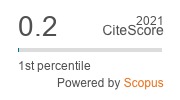AN INNOVATIVE MACHINE LEARNING FRAMEWORK CRAFTED TO BOOST THE EFFICIENCY OF MEDICAL SYSTEMS THROUGH CUTTING-EDGE SOFTWARE DEVELOPMENT TECHNIQUES.
Abstract
In the contemporary landscape, the convergence of technology and healthcare is increasingly geared towards improving diagnostics and cultivating resilient health systems. The harnessing of existing medical data to create solutions for forthcoming challenges through machine learning has garnered substantial attention. The amalgamation of machine learning with diverse technologies is producing exceptional outcomes for health systems. In this research, we introduce a Cutting-Edge Machine Learning Framework designed to Enhance the Efficiency of Health Systems through Software Engineering Approaches. Our strategy utilizes a combination of sectors, encompassing software development, machine learning, algorithmic techniques, and accessible health informatics data to guarantee optimal system performance. We have carried out experiments on a variety of data sets and have outlined the essential functional processes. Our project will unfold in several stages, including design, implementation, maintenance, workflow definition, information structuring, security and privacy safeguarding, performance assessment, evaluation, and deployment of software solutions. Machine Learning (ML) is rapidly positioning itself as a crucial approach in the fields of biomedical research, clinical investigations, medical diagnostics/devices, and personalized healthcare. Such advancements can unveil fresh possibilities for researchers, clinicians, and patients alike, empowering them to make informed decisions and attain enhanced outcomes. When applied in healthcare settings, these methodologies may significantly improve the efficiency and effectiveness of health research and the care ecosystem, ultimately elevating the quality of patient care.




